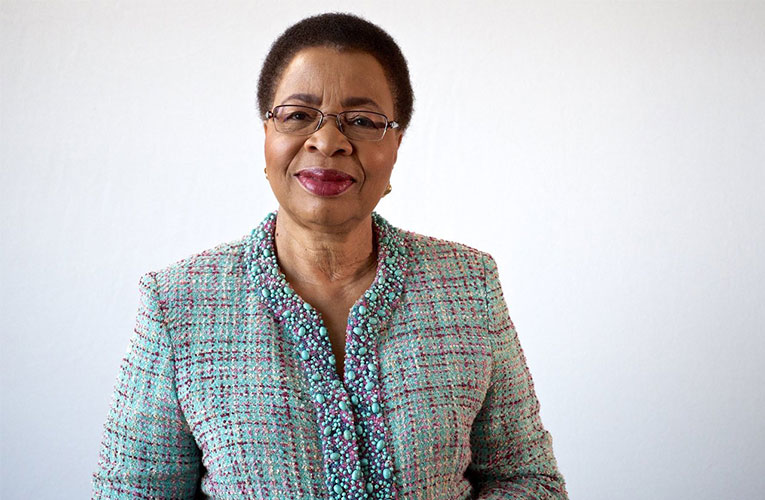Graca Machel Trust at the forefront of efforts to financially empower women entrepreneurs in southern Africa
By Edward Tsumele
The Graca Machel Trust established by the former First lady Graca Machel, recentlycommissioned a survey that looked at 39 women entrepreneurs in various sectors like: Services & Trade (25%), Construction (22.5%), Energy & Engineering (20%), Manufacturing (15%) and Agribusiness (12.5%).
The findings revealed that a number of the women spoke to their experience seeking government grants and frequently described the experience as tedious, very tough, a scam because of the red tape, sketchy, putting a lot of constraints on small businesses, and difficult, never been easy.
The WESA programme is hoping to be the change and is involved in the development of women entrepreneurs to assist women not only in South Africa but Southern Africa to gain tools and knowledge to grow their businesses.
The Graça Machel Trust is a Pan-African institution that acts as a vocal tool and an effective advocate for women and children’s rights. The Trust’s vision and mission are to nurture caring societies that value social justice and movement. Moreover, they aim to promote women’s contributions and leadership in the economic and social development in Africa; through the Women’s Economic and SocialAdvancement(WESA) Programme.
WESA programme did a survey which was aimed at strengthening advocacy and better supporting women entrepreneurs, establishing a baseline for women entrepreneurs, identifying key recommendations for inclusive business financing practices for women related to the COVID-19 economic response. Also, increasing women’s access to finance and financial services, strengthens the skills and capacity of women to access finance and determines the nature of investor readiness of women who have applied for finance.
CITYLIFE/ARTS recently had an interview with the Graca Machel Trust’sNeo Mofokeng, the Programme Officer to find out what it is that the trust is currently doing to achieve financial inclusion for women entrepreneurs in Southern Africa.
CITYLIFE/ARTS: What does the celebration of women’s day look like and mean to you?
Neo Mofokeng: International women’s day aims to celebrate women’s achievements and increasing visibility while calling out inequality. Over and above that, the day to me, means creating more awareness around an urgent need for gender parity across all spheres of life.
It is also a day to take stock of the gains made by women globally on issues related to their empowerment within the political, economic and social spheres.
CITYLIFE/ARTS: What impact do you expect the Graça Machel Trust to have in the economic and financial lives of women in general and women entrepreneurs in particular in Southern Africa?
Neo Mofokeng: Women are significant contributors and drivers of economic growth through entrepreneurship and involvement in the labour market. Although, women owned businesses have increased over the years, women continue to encounter a myriad of obstacles in sustaining their businesses, especially access to finance. Women need a level playing field and a financial sector that will enable women to access affordable financial services to maximise their economic opportunities.
The barriers women entrepreneurs encounter emanate from both a supply and demand side. Through our financial inclusion interventions the Trust aims to influence transformative policy actions that promote opportunities to advance the growth of women’s Micro, Small to Medium Enterprises (MSMEs). This will be achieved by implementing focus research to inform targeted advocacy; thought leadership; strategic multisectoral partner mobilisation and amplification of impact driven solutions that promote growth of women’s MSMEs through inclusive value chains and leveraging digital solutions; as well as connecting Networks into a strong and emboldened ecosystems of change agents and actors.

This will be achieved through advocating for access to and leveraging of digital technology; promoting inclusive value chains approaches for MSMEgrowth; advocating for accountability for gender inclusion as well as building strategic partnerships for action. The overall impact should be an ability for African States to harness the contributions and nascent potential of women’s full participation in the economy, while simultaneously addressing the UN Sustainable Development Goals Agenda (Goal 5: Gender Equality) and the continent’s Agenda 2063 development blueprint’s.
CITYLIFE/ARTS: How do you intend to measure the impact of the Graça Machel Trust on the economic and financial lives of women entrepreneurs in Southern Africa, the Trust’s target region?
Neo Mofokeng: Our current outcomes agenda and action pillars speak to influencing transformative policy actions that promote opportunities to advance the growth of women’s businesses as a pillar of economic recovery and reconstruction from the impact of the COVID-19 pandemic and beyond. Fittingly, The Trust has convened a high-level Expert Group of African women leaders in the banking and finance sector, as a group of strong actors with the stature to drive systemic action to advance women’s active participation in the digital economy.
Through the guidance of our Expert Leader’s Group the Trust aims to have 40% women’s leadership representation in economic task forces and selected banking and finance institutions.In relation to championing inclusive financing for recovery, our target is to have 30% of business support disbursed to women-owned/led enterprises.
CITYLIFE/ARTS: A recent study carried out by one of the Graça Machel Trust’s programmes, Women’s Economic and Social Advancement (WESA) Programme, has found out that women entrepreneurs are unhappy with the way business grants are disbursed. What interventions do you think the Trust can play to mitigate this untenable situation?
Neo Mofokeng: Being that the Trust is a Pan-African advocacy institution, key interventions are dependent on our power to convene and connect people and groups that should know each other and work together, and catalyse action through enhancing local initiatives, lending solidarity where it is needed.
As a dependable advocate for women’s financial inclusion on the continent the Trust amplifies women’s movement building to engage the financial inclusion ecosystem to seek ways in which women can access finance and markets for their businesses, in addition, contribute to a gender inclusive financial sector that places women at the core of change and enables equitable access to finance.










